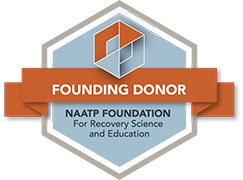Maintaining Your Sobriety During Stressful Situations – Like the Coronavirus Outbreak
Stress is ranked by most studies as among the most frequent causes of relapse. Many people in recovery turn back to their substance of choice when they are feeling overwhelmed with sudden, stressful events.
Today’s outbreak of COVID-19 is similar to the days and weeks following the 9/11 terrorist attacks and we have much to learn from the tragedies of 2001.
Dr. David Vlahov, a dean and professor at the University of California San Francisco, evaluated the degree to which people used drugs or alcohol to cope with stress shortly after Sept. 11. He and a team of researchers surveyed 988 New York City residents in the weeks following 9/11. Nearly 10 percent of participants reported an increase in smoking, and just under 25 percent consumed more alcohol in the days following the events.
Between December 2002 and April 2003, the New York State Office of Alcoholism and Substance Abuse Services conducted a study of the impact of 9/11 on New York City drug treatment programs.
Researchers interviewed 75 patients and 16 administrators spanning 15 rehab centers. The results showed that relapse spiked in the weeks and months following the terrorist attacks. Fifty percent of patients in outpatient treatment and 37 percent of methadone patients used illicit drugs on or after 9/11. Nearly 30 percent of patients reported an increase in alcohol consumption after the events.
For many addicts, drinking and using is a maladaptive way of coping with various stressful experiences. Being Hungry, Angry, Tired or Lonely (HALT) can exacerbate feelings of stress, so it’s always important to try to assess how you are feeling before you let things overwhelm you.
Here are some tools you can use to prevent relapse in times of high stress.
Meetings matter
If you haven’t been getting to meetings, now may be the time to get back in the rooms. Meetings give many people that additional structure and support that they need to succeed in recovery. Weekly meetings, sponsorship, and fellowship can help coach and support you through stressful times. Meetings help you remember that you’re never alone.
During the outbreak some meetings, especially those being held in hospitals or nursing homes, may be moved or cancelled. Don’t be discouraged if the meeting you were expecting to go to is moved or postponed, instead try reaching out to someone from your network to get updates about meeting times and locations.
Use the phone
Calling fellow recovering alcoholics isn’t always comfortable, but right now may be crucial. If social isolation is the route you are taking, maintaining contact with others in recovery is important. Alcoholism is a disease of isolation, so don’t let the COVID threat lead you back in that direction. Instead, make yourself a commitment to call at least one other alcoholic a day, and more on the days that feel more difficult.
Stay positive
Replacing negative thoughts with positive ones can improve mental health. It is important to put stress in perspective and maintain a positive attitude during difficult times. Don’t dwell on negative news and don’t hang on every word from reporters seeking to share the latest statistic.
Get out and exercise
This is especially important if you’re not working or are stuck at home for many days at a time. Exercising daily can reduce stress, improve mood and enhance physical and mental health.
Keep a journal
Writing about your thoughts, feelings and experiences can help you deal with stress. You can put pen to paper to express your emotions related to stressful events. For example, you can write about lessons learned from previous stressful experiences and how you went about coping with them.
Reach out for help
It is important to seek assistance after treatment, regardless of how many years you’ve been sober. Counseling and aftercare services can help you recognize and avoid triggers that can lead to relapse.
Social support also promotes mental health. many studies have shown that support from loved ones can reduce stress during difficult times. Family and friends can provide emotional support, encouragement and a sense of belonging.
Meet the Author:
Jenn Worthington, Alumni Relations Coordinator









